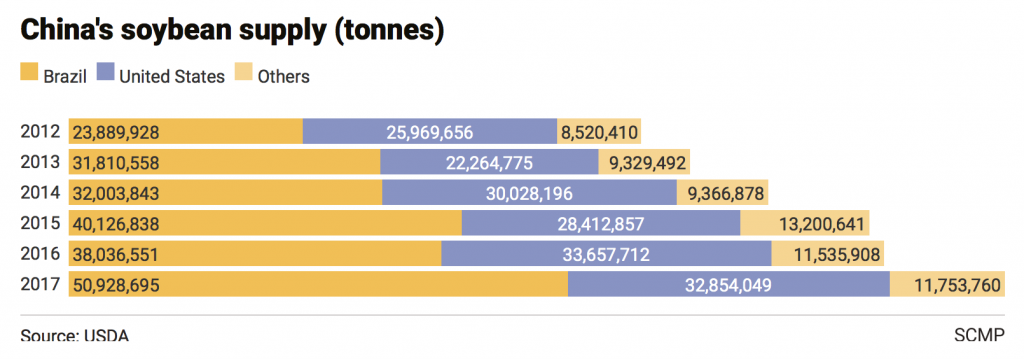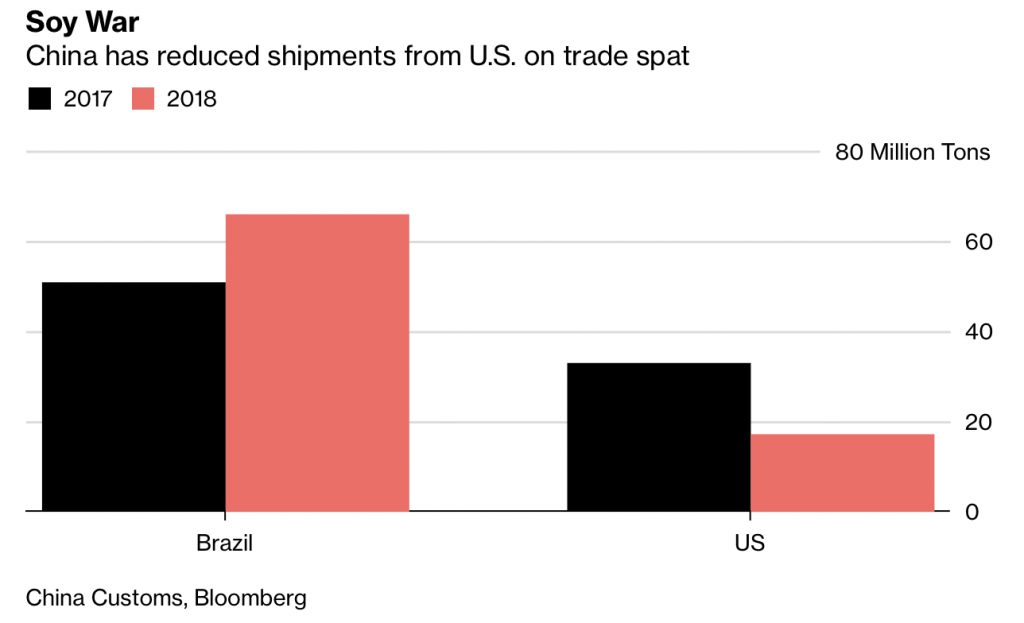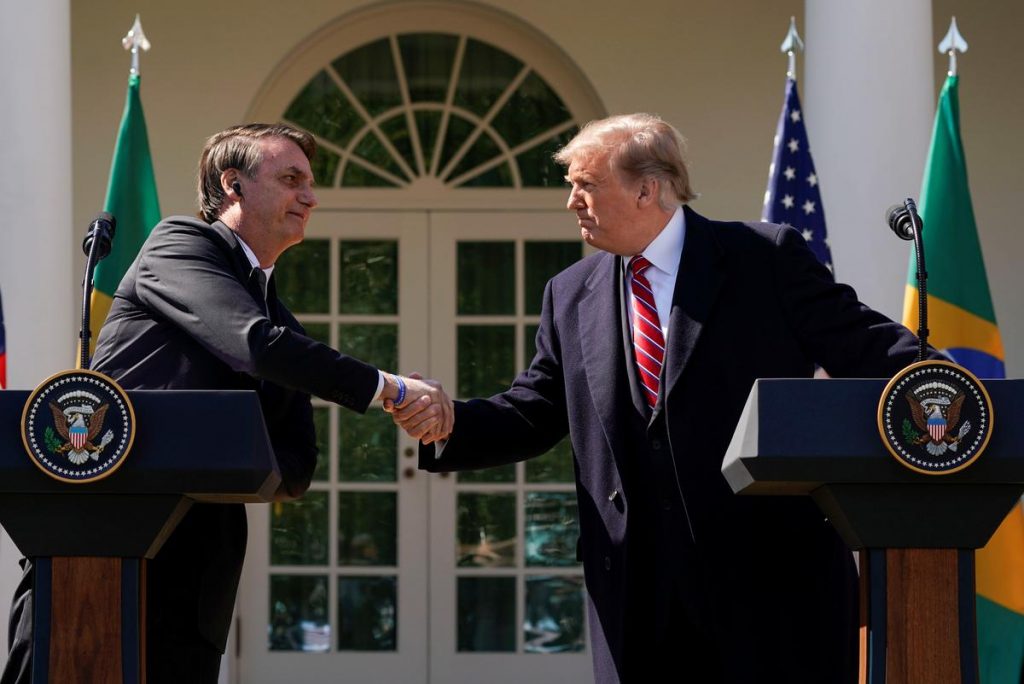REGULATING BRAZILIAN SUPPLY WILL PRESSURE CHINA …
The United States has tariffed imported Chinese goods to force overdue changes in China’s unfair trade practices.
In retaliation, China has targeted U.S. agricultural products with 25% tariffs to hurt farmers loyal to President Trump.
Chinese tariffs have particularly affected U.S. soybean farmers. In 2017, according to the USDA, China imported 53% of their soybeans from Brazil and 34% from the U.S.

But in 2018, after China slapped a 25% retaliatory import duty on U.S. soybeans, Bloomberg reports that “China bought only 16.64 million tons of soybean from the U.S., a 49% drop from the year before. Imports from Brazil, China’s largest supplier, totaled 66.1 million tons, up 30% from 2017. Brazilian soybeans accounted for 75% of China’s total imports in 2018.”

The Trump Administration has earmarked $15 billion in aid to affected farmers, but what else can be done to thwart China’s tariff attack on America’s soybean producers?
As noted in the South China Morning Post, Brazilian soybean is about 20% more expensive than the U.S. product, so Chinese processors pay a higher price as a result of their own country’s tariffs. But they can either “absorb the increased costs, pass them along to the livestock producers utilizing the soy meal and food companies utilizing the soy oil, be subsidized by the government, or some combination.”
So why not make China pay the ultimate price by denying them replacement imports? In other words, why doesn’t the Trump Administration coordinate and regulate soybean supply with Brazil? If the Organization of Petroleum Exporting Countries (OPEC) can regulate the supply and price of oil, why can’t the U.S. and Brazil regulate the supply of soybean? Maybe we need an OSEC! Denying China’s important pork industry the feed sustenance necessary to sustain it would have a much bigger impact on China’s economy and political leadership. Isn’t this the type of second order tactic the U.S. should employ? Shouldn’t the U.S. leverage its good relations and common interests with other free market economies in the Western Hemisphere to increase pressure on China?
The U.S. Department of State says the United States and Brazil “enjoy robust political and economic relations” …
- Secretary of State Mike Pompeo traveled to Brasilia for President Jair Bolsonaro’s inauguration in January 2019. President Bolsonaro visited Washington and met with President Trump in March 2019. These visits reflect the commitment of both countries to advance shared goals through high-level engagement.
- The United States and Brazil are strengthening cooperation on defense issues. In March 2019, President Trump announced the United States’ intent to designate Brazil as a Major Non-NATO Ally.
- The United States is Brazil’s second-largest trading partner. Two-way goods trade was $70.7 billion in 2018. The U.S. is Brazil’s second-largest export market. The U.S. had invested $68.34 billion in Brazil as of 2017.
- The United States and Brazil conduct regular exchanges on trade facilitation, regulatory good practices, and standards.
- Brazil and the United States belong to a number of the same international organizations, including the United Nations, Organization of American States, Inter-American Development Bank, G-20, International Monetary Fund, World Bank, and World Trade Organization — all of which promote free and fair trade practices.

March 19, 2019
(Source: REUTERS/Kevin Lamarque)
The Trump Administration needs to do a much better job coordinating its tariff policies with economic allies. It could start by asking Brazil to significantly reduce its soybean supply until China keeps its commitments to WTO fair trade rules and eliminates its tariffs on U.S. agricultural products.
President Trump: Call President Bolsonaro today and team up to defend fair trade, free market economies, and your great American farmer constituency!
